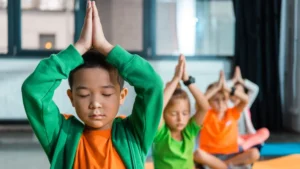The Importance of Lifestyle

Lifestyle refers to the interest and behaviour set that determines a person’s general character. The term was first introduced by Austrian psychologist Alfred Adler in 1929 in his book, The Case of Miss R. Adler defined lifestyle as a basic character that is developed early in childhood. Today, lifestyle has a wide range of meanings and influences.
Socialization
Research shows that socialization plays an important role in our overall growth. It improves our mental functioning, lowers our stress and anxiety, and develops our empathy and understanding of the perspective of other people. It also helps us overcome shyness and helps us maintain a higher self-esteem. It can also improve our health in a variety of other ways.
Socialization is an ongoing process that starts from childhood. It involves learning customs, language, and norms from family members and other members of society. This process helps us develop a sense of ourselves and become a contributing member of society. Sociologists have identified several axes along which socialization takes place.
Physical activity
Physical activity is a great way to maintain your health and fitness. It can take many forms, including daily activities like walking, cycling, dancing, and other activities. It can also involve more intense physical activities, such as exercise in a gym or playing competitive sports. It’s important to get at least half your daily activity from physical activity.
Increasing physical activity levels can reduce your risk of noncommunicable diseases such as diabetes, heart disease, and some cancers. Additionally, it can improve your mental health and cognitive function. It can also improve your sleep quality and help prevent falls. Furthermore, physical activity can be beneficial for the environment as well.
Body mass index
The BMI (body mass index) is a statistic that is used by many healthcare professionals to determine a person’s weight and height. While the index has some value, it does not provide accurate data, and it has been shown to be inaccurate for many people of color. For example, BMI does not distinguish between muscle tissue and adipose tissue, which can be misleading for athletes who practice strength sports.
The association between higher BMI and cardiovascular disease is still not well understood. The researchers wanted to determine whether lifestyle and familial background may play a role in this relationship.
Professionalism
Professionalism is a vital trait for a successful career. It involves a high degree of honesty, punctuality and a spirit of service. It also involves the ability to work with others and to meet deadlines. In short, it means being an expert in one’s field.
The key to professionalism is to respect people’s time. Professionals don’t disturb their colleagues when they are at home and they don’t interrupt the personal lives of those around them. It is an attitude that will last a lifetime.
Friends
The relevance of friends in lifestyle is increasingly recognized in the sociodemographic context. Family relationships have become more complex and fragmented in recent decades, and a close friend’s counsel can often fill the gap left by a traditional family. The number of friends you have has a direct effect on your overall life satisfaction.
Friends have a profound impact on your daily life, influencing your personal tastes and habits. They influence your spending habits, your music tastes, your decorating tastes, your vacation plans, your charitable work, and your exercise priorities. Without friends, life would feel incomplete.
Recreational activities
Recreational activities offer a range of benefits for your mental, physical and social health. In fact, they’re one of the most effective forms of treatment for a number of mental health conditions. Whether you play sports, go on vacation, or simply enjoy a day with friends and family, recreational activities can help improve your overall mental health. They can help you relax and relieve stress, too.
Having a varied lifestyle with recreational activities is crucial for mental and physical well-being. It helps you manage stress, improve your self-esteem, and have more energy. Regular participation in recreational activities can lead to more satisfaction in your life, as you meet new people and gain confidence as you improve.







